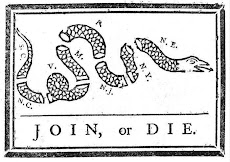
Having been lacking inspiration I started jotting notes down about ideas for essays a month or so ago most of which I readily lost. But, I came across one under a pile of paperwork the other day referencing this brief article in the Times which neatly depicts Obama’s infamous “guns and God” comment as being fundamentally wrong. The author, Larry Bartels, makes a brief but powerful statistical case that Obama’s assumptions are grossly inaccurate. I suppose Obama’s incorrect assumptions are representative of what a lot of, if not most of Americans seem to think—that the rural working class is the conservative base of the Republican Party and that this group is strongly swayed by so-called wedge issues such as gay rights, abortion rights and gun control. The fact appears to be that they are in fact much less likely to be swayed by wedge issues than educated, well-to-do urbanites. One underlying message here seems to be that it is the relatively well-to-do urbanites who can afford to be distracted by such wedge issues, while less well-to-do people have bigger fish to fry. The point of it all is that Obama has embraced a misleading stereotype of a big segment of the population, and that could really hurt his chances of appealing to (or serving the needs of) those people.
Also, I thought this was a really interesting article, because I saw in it a parallel to the perception of “pagans” and “heathens.” Pagans (literally "rural dwellers") and heathens (possibly "dwellers of uncultivated land") became marginalized for their religious beliefs as radical new religions (Judaism, Christianity, Islam) overran the cities. While these terms were pejorative and were intended to disparage the subjects for deviance, the pagans and heathens actually clung to older, more traditional beliefs and values. That is to say, they were socially conservative, and their cosmopolitan detractors were the real deviants.
Maybe, in the same way, "middle America" is a storehouse for the values our country supposedly has historically embraced. Few would argue with this, but their assumptions about what traditional American values are would vary widely and would often be in sharp contrast to one another. I think Bartels’ article makes it pretty clear what they are not.
Also, I thought this was a really interesting article, because I saw in it a parallel to the perception of “pagans” and “heathens.” Pagans (literally "rural dwellers") and heathens (possibly "dwellers of uncultivated land") became marginalized for their religious beliefs as radical new religions (Judaism, Christianity, Islam) overran the cities. While these terms were pejorative and were intended to disparage the subjects for deviance, the pagans and heathens actually clung to older, more traditional beliefs and values. That is to say, they were socially conservative, and their cosmopolitan detractors were the real deviants.
Maybe, in the same way, "middle America" is a storehouse for the values our country supposedly has historically embraced. Few would argue with this, but their assumptions about what traditional American values are would vary widely and would often be in sharp contrast to one another. I think Bartels’ article makes it pretty clear what they are not.


No comments:
Post a Comment